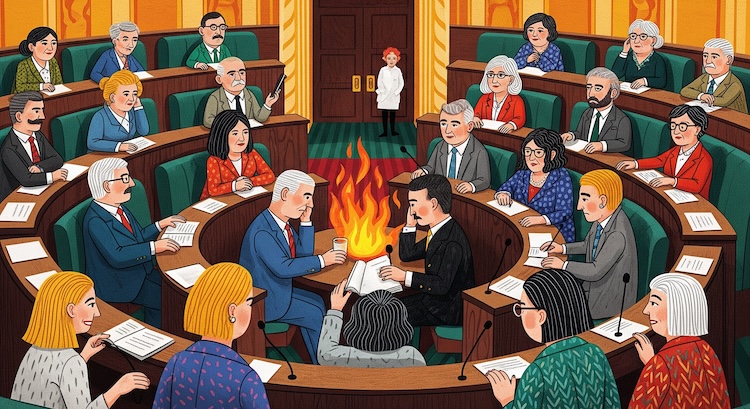
Europe’s Digital Future Demands Public Ownership And Worker Control
European AI strategy must prioritise democratic governance over market solutions to protect citizens' data and workers' rights.
Social Europe is an award-winning digital media publisher driven by the core values of freedom, sustainability, and equality. These principles guide our exploration of society’s most pressing challenges. This archive page curates Social Europe articles focused on societal issues, offering a rich resource for innovative thinking and informed debate.

European AI strategy must prioritise democratic governance over market solutions to protect citizens' data and workers' rights.

Extreme wealth concentration across the EU undermines opportunity and security for millions while property ownership becomes increasingly unattainable.

When rural schools experiment with artificial intelligence, they reveal whether technology serves the many or the few.

A prominent economist's attack on an entire generation ignores economic facts and threatens social cohesion.

Inequality fuels crisis — for people, planet, democracy and the next generation. It’s time to act.

The European Union must urgently address AI's profound impact on employment, income, and social cohesion.

Real democracy thrives on disagreement—unity without conflict often masks power and silences necessary political struggle.

Governments worldwide are dramatically reshaping higher education, challenging long-held models and academic autonomy.

As extremists exploit democracy’s freedoms, should constitutions strike back—or always leave judgment to the ballot box?

For some workers, the future of work is not fully remote, nor fully in the office. It is, increasingly, a clever combination of both.

Amid Donald Trump's hostility towards universities the question remains: how did the US leading scholars lose trust?

A new draft convention proposes to establish a comprehensive rights and protections for platform workers globally.

The EU should welcome US scholars fleeing Trump’s assault on academia—and lead in global innovation and freedom.

As wealth concentrates at the top, Europe must act now to defend democracy and economic stability for all.

Western parties stopped defending openness decades ago—now populists dominate a fight no one else dares to enter.